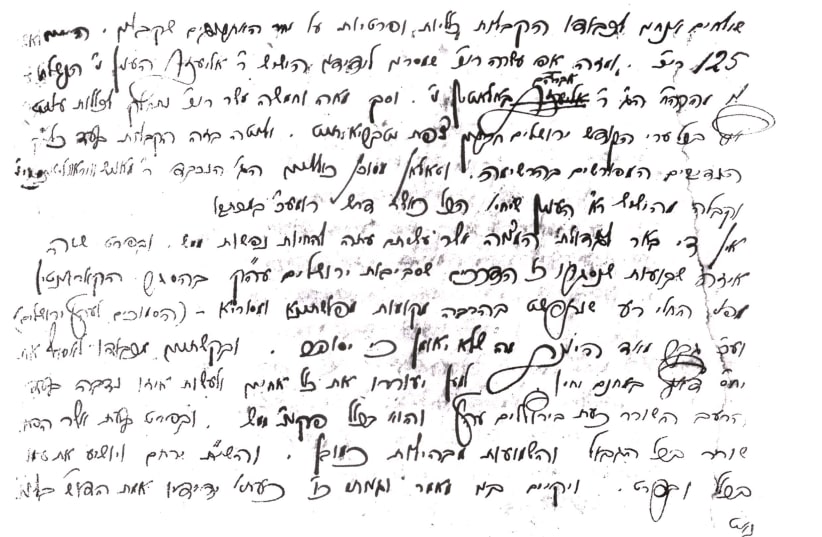Right now as the government restrictions tighten in an attempts to slow the virus spread and the number of cases rises, causing fear among the public, similarities to these events can be found in the letters describing a cholera outbreak in 1902.
One author of a letter wrote of "fears and anxieties" during the outbreak, and the "extra expenses the government has imposed on every individual regarding hygiene."
The extra hygiene expense is a something we can relate to, as our leaders go on TV, calling for social distancing and reminding the public to wash their hands.
However, the author continues to describe a severe famine in the land that occurred after roads had been closed, something that as a strong established nation, we do not have to fear ourselves.The Economy Ministry recently released a statement saying that infrastructures supplying food will continually be maintained and in operation throughout the spread of the virus, and Prime Minister Benjamin Netanyahu asked the public to stop rushing the grocery stores in their attempts to hoard food.
"It is both frightening and encouraging to read these letters,” says Rabbi Menachem Traxler, archive manager.
“On the one hand they show the extent that a disease can have on our community. But the fact that the Land of Israel and the Jewish community have grown so much since that time provides us with the confidence that if we survived then, we will overcome this crisis as well."
The archive is located in an exhibit at the Pantry Food Packer's Food Preparation facility in Jerusalem, founded by the first Lubavitcher rabbi, and maintained by the Colel Chabad organization. The organization is known as the longest running charity in Israel.
The author who wrote the letter addressed philanthropic contacts from around the world, asking for contribution to help feed the hungry during the famine. Though we may not have to fear a famine, Rabbi Traxler says, "it will once again be necessary sthat we come together and recognize the needs of so many people who are suffering due to the hardships imposed by this disease."
Recent operations of the soup kitchen have been completely overhauled, as the elderly and needy are no longer able to come to them, due the social bans imposed on the country. This has caused a complete switch to take-away and delivery options, according to Rabbi Sholom Duchman, director of Colel Chabad and their national network of soup kitchens.The facility has been getting an ever growing number of requests, as many people in the service industry are "being financially hammered," says Duchman.
"Our tradition and history show that we have confronted many challenges in the past, and with God’s help and the support of people all over the world, we will do everything possible to get through this time," he continues.
